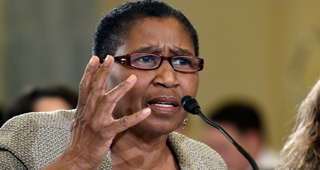The NBPA has decided that it plans to exercise its option to audit the books of up to five teams later this summer. The union has held this right since at least 1995, but has rarely, if ever, utilized it.
The CBA doesn't expire until 2021, but either side can opt out after the 16-17 season, with notice needing to be given by December 15.
Michele Roberts has said it is a "pretty good bet" the union will opt out.
Under the CBA, the money allocated to players comes from a pool of what is known as basketball-related income.
Players get half of this revenue, which was almost $4.5 billion last season. BRI under the previous agreement was at 57 percent for the players.
While the drop in percentage of BRI was a huge concession by the union, not renegotiating the definition of basketball-related income was possibly an even bigger mistake. The CBA has little to say on matters such as franchises owning all or part of regional television networks and arenas.
Adam Silver recently warned the players against opting out, indicating that there are other CBA items the owners want addressed. Those comments could be perceived as the league wanting to preserve the status quo and not have the players opt out to renegotiate several key items.
Sports economist Andrew Zimbalist suggests that Roberts would likely argue for a broader definition of BRI, as well as arguing that teams receiving equity stakes in RSNs is a “capitalization of an income stream,” and therefore should count as BRI.
Update: The NBA released the following statement via Twitter:
"Today’s @kevinmdraper Deadspin post is grossly misleading and contains many false assertions. FACT: Roughly 1/3 of teams losing $ this year. New TV money does not kick in until 2016-17 season. As in (the) past, all league and team audited financials will be shared (with the) NBPA in collective bargaining. Avg player compensation in ’16-17 projected to be more than $8 million, roughly 50% higher than ’10-11."


